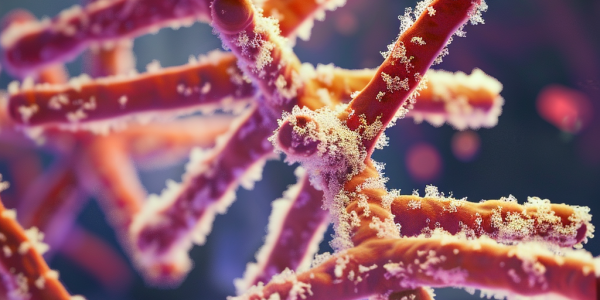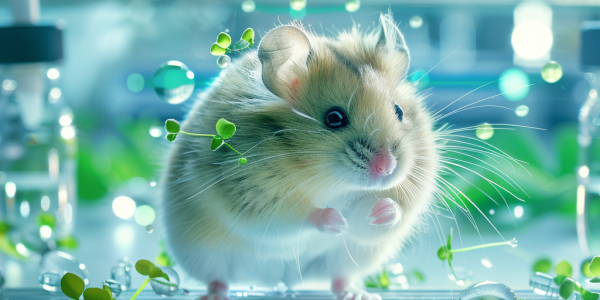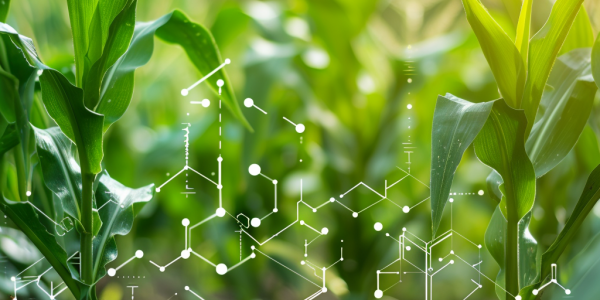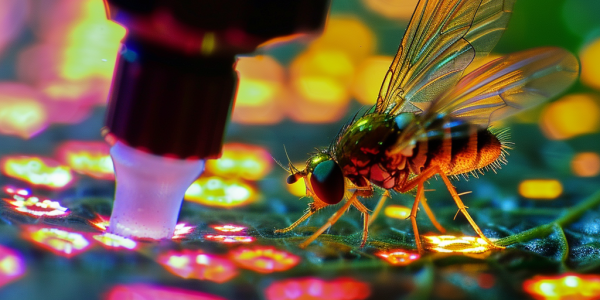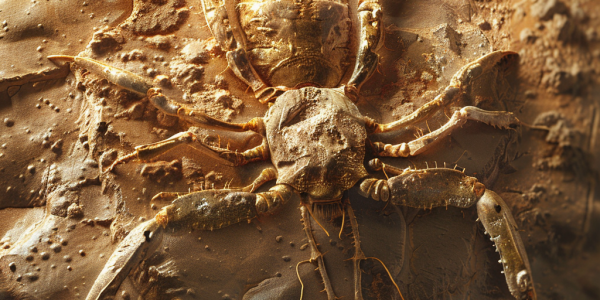Breakthrough Study Reveals Unique Growth Patterns of Tuberculosis Bacterium
Researchers have made groundbreaking discoveries in understanding the growth patterns of Mycobacterium tuberculosis (Mtb), revealing its unique linear growth mode and significant heterogeneity. These insights, published in Nature Microbiology, could lead to more effective treatment strategies for tuberculosis, a persistent global health challenge.
Scientists Create Solar-Powered Hamster Cells in Biotech Breakthrough
Scientists in Japan have achieved a groundbreaking feat by integrating chloroplasts into hamster cells, allowing them to harness sunlight for energy. This innovative research, published in the Proceedings of the Japan Academy, Series B, challenges previous beliefs about the compatibility of plant organelles with animal cells and opens new avenues for tissue engineering and regenerative medicine.
Biochemists Develop Genetic Pathway for Sustainable Food Production
Groundbreaking research by biochemists at Utah State University, funded by the Gates Foundation, is set to revolutionize sustainable food production. By simplifying the genetic transfer of nitrogen fixation to essential crops like corn and rice, this innovative approach could enhance food security and reduce reliance on chemical fertilizers, addressing global agricultural challenges.
Study Reveals Protein Role in Aging-Related Cognitive Decline
A recent study published in Nature Communications reveals that protein buildup in aging fruit flies parallels human memory loss. Researchers found that filamentous actin (F-actin) accumulation impairs brain function, but genetic modifications can prevent this buildup, extending lifespan by 30%. This research offers insights into cognitive decline and potential interventions for enhancing cognitive health in aging populations.
450-Million-Year-Old Arthropod Fossil Unveiled: A New Species Discovered
Astonishing discovery of a 450-million-year-old fossil arthropod, Lomankus edgecombei, unveils new insights into the evolution of ancient life. This well-preserved specimen, found in iron pyrite, highlights the adaptability of arthropods and challenges previous extinction theories. Led by Associate Professor Luke Parry from the University of Oxford, this groundbreaking research emphasizes the significance of megacheirans in understanding the complex history of life on Earth.
Research Reveals Limits of Human Lifespan and Need for Healthspan Focus
Recent research in Nature Aging reveals that while average life expectancy has increased, the maximum lifespan remains stagnant, highlighting a need to shift focus from lifespan extension to improving health span. The study, led by Harvard’s William Mair, emphasizes addressing age-related diseases and investing in innovative research to enhance both longevity and quality of life.
Breakthrough in Protein Structure Unveiled by MSU Researchers
Researchers at Michigan State University have unveiled the first high-resolution structure of the elusive protein SpoIVFB, crucial for bacterial sporulation. Utilizing advanced cryo-electron microscopy, this breakthrough enhances our understanding of cellular regulation in bacteria and its implications for human health. This significant discovery marks a pivotal moment in biochemistry, opening new avenues for research in microbiology and biotechnology.
Cleveland Clinic and Cornell Unveil AI Tool PIONEER to Revolutionize Drug Discovery
Researchers from Cleveland Clinic and Cornell University have launched PIONEER, a groundbreaking AI tool that enhances the understanding of protein-protein interactions crucial for drug discovery. This innovative tool aims to streamline the identification of therapeutic targets, accelerating the development of effective treatments for cancer and other diseases. By integrating extensive genomic data and 3D protein structures, PIONEER represents a significant advancement in health informatics and personalized medicine.
Breakthrough Biologic Drug Targets Mutant HER2 Protein for Cancer Treatment
A groundbreaking study from NYU Langone Health has developed a new biologic drug targeting mutant HER2 proteins, promising effective cancer treatments with minimal side effects. This targeted therapy represents a significant advancement in oncology, paving the way for personalized medicine and improved patient outcomes.
Great Bay Bio Launches Intelligent Drug Development Ecosystem in Suzhou
Great Bay Bio (GBB) launched its Intelligent Drug Development Ecosystem on October 18, 2024, in Suzhou, China, aiming to revolutionize biopharmaceutical development. This innovative system streamlines drug discovery and bioprocess development, addressing industry challenges like high costs and lengthy timelines. Co-founders Mr. Kingsley Leung and Dr. Michael Chen emphasized the ecosystem’s potential to enhance efficiency and collaboration in drug development, paving the way for faster, cost-effective solutions that benefit patients worldwide.

